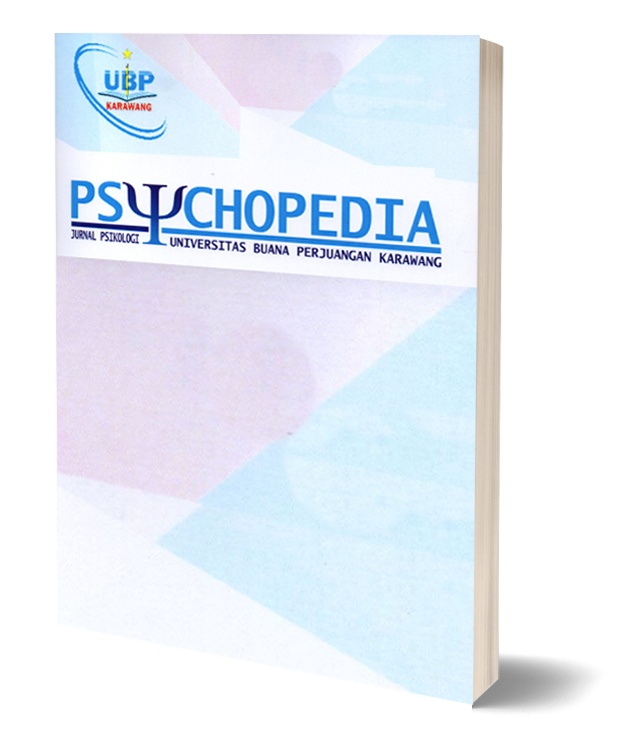SIKAP TERHADAP PERNIKAHAN DITINJAU DARI KONDISI PERNIKAHAN ORANG TUA
DOI:
https://doi.org/10.36805/psychopedia.v8i2.6123Keywords:
Sikap pernikahan; Kondisi pernikahan orang tuaAbstract
Studi ini menguji perbedaan sikap pernikahan antara mahasiswa dengan orang tua harmonis, utuh namun
berkonflik, dan bercerai. Data dikumpulkan dari 123 mahasiswa IAIN Kediri yang dibagi dalam tiga kategori,
yaitu mahasiswa dengan orang tua bercerai, mahasiswa dengan orang tua utuh namun berkonflik, dan mahasiswa
dengan orang tua harmonis. Jumlah responden pada masing-masing kategori adalah 41 mahasiswa. Analisis data
dalam penelitian ini menggunakan ANOVA. Hasil uji menunjukkan F= 4,997 dan p= 0,008 < 0,05, maknanya ada
perbedaan sikap pernikahan antara mahasiswa dengan orang tua harmonis, utuh namun berkonflik, dan bercerai.
Implikasi bagi para profesional bersama dengan arahan untuk penelitian di masa depan.
This study examines differences in marriage attitudes between college students and parents who are harmonious,
intact but in conflict, and divorced. Data was collected from 123 students of IAIN Kediri which were divided into
three categories, namely students with divorced parents, students with intact but conflicting parents, and students
with harmonious parents. The number of respondents in each category was 41 students. Data analysis in this study
used ANOVA. The test results show F = 4.997 and p = 0.008 <0.05, meaning that there are differences in the
attitude of marriage between students and their parents in harmony, intact but in conflict, and divorced.
Implications for professionals along with directions for future research.

